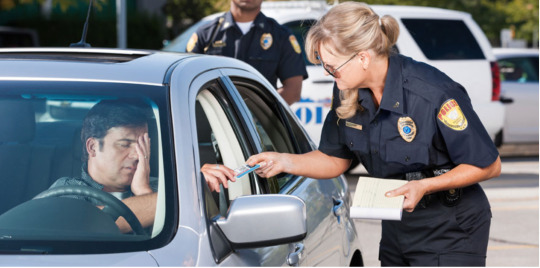Text
Punishment vs. Abuse: Where Should the Line be Drawn for Pets?

A Volusia County man was recently accused of beating and killing his 9-month-old Labrador Retriever puppy because the dog “messed up” his house while he was at work (link to story - http://www.wesh.com/article/man-charged-in-fatal-puppy-beating/9257718). He is currently being charged with a third-degree felony, which is punishable by up to 5 years in prison, 5 years of probation, and a $5,000.00 fine. While some people feel the potential punishment is too lenient for an issue like this, others feel it is appropriate.
People sometimes compare the responsibilities of caring for pets to those of caring for children. When you purchase or adopt a pet, you are making a commitment to take care of and nurture that pet as a new member of your family. In light of this recent incident in Volusia County, a question that comes to mind is - should you be able to punish a pet in the same way as you punish a child? Legally speaking, the answer is yes (with a caveat). From the perspective of the State of Florida, cases involving the alleged violation of our child abuse statues can be some of the hardest cases to prove. While corporal punishment is permitted under the law, the rule of thumb is usually that if you leave a mark, you will be charged with child abuse. Also, similar to children, one of the responsibilities you take on when you purchase or adopt a pet is to provide proper training, teach them right from wrong, and distinguish what is acceptable against what is not. If you fail to do so, you will likely end up with a “messed up” house.
What are your thoughts on this issue? Do you feel the potential punishment this man is facing is too lenient, fair, or too strict? Where is the appropriate line drawn between acceptable punishment of a pet and cruel and unusual punishment? Should it be the same as the standard for a child, or different?
Let us know your thoughts.
0 notes
Text
Penalties you could face if arrested for a DUI in Florida
You’re out laughing, dancing, or just having good conversation with friends, family or loved ones and you decide to have a drink. After being out you decided to leave and head home and realize there is a police officer behind you. You heart begins to beat just a little bit faster and beads of sweat begin to form. Then your worst fears materialize - the sirens turn on and the lights begin to flash.
Everything moves in slow motion as you see that officer move toward you. You begin to analyze everything that lead up to this point.
Did I miss a stop sign? Did I swerve? I only had one drink. What did I do?
After the pleasantries conclude and the officer is still lingering around, panic sets in and this is why: you are being investigated for driving under the influence (DUI).

At this point another set of questions begin to start swirling in your head. “What is going to happen to me?” I am being asked to do sobriety exercises, they are asking whether I will blow into a machine to measure my alcohol content. Should I have someone with me giving me advice? What is the least and worst thing that can happen to me?
The most common misconception is thinking you can handle this situation by yourself. Below is a table showing the penalties that come with your first, second, third, and fourth DUIs in Florida.

The answer is always no - you cannot handle something like this by yourself! A lawyer can lead you through the thick of the legal process. You can't predict that something like this will happen, but you can be fully prepared to obtain the best possible outcome by a good attorney. An attorney that will explain what category you fit into, help you make sense of police reports, talk to you about possible defenses in your case, and whether you meet certain criteria under a first time arrest for a diversion program. It always best to ask for help from people you trust and get advice from people who are experienced in the area and are looking out for your best interest.
If you, a friend, or a family member have been arrested for a DUI, call us right away. We are here to help.

#RaisedToProtect
0 notes
Text
Enough is Enough
On the night of November 24th, 2013, two Orlando Police Officers were on “proactive” patrol in one the historically black areas of Orlando, Florida. While on their “proactive” patrol, these two officers saw two black youths in a vehicle. The officers could “see” the two young black youths at night and in the vehicle because, according to one of the officer’s sworn affidavits, there was not any window tint on the car’s windows. According to this same sworn affidavit, the passenger’s seat was almost angled all the way back, so much that he was almost lying down (and presumably not able to if a passenger was in the vehicle at all). The two Orlando Police Officers then decided to stop the car as part of their “proactive” patrol, and activated their emergency lights and sirens. As the car with the two black youths responded by beginning to come to a stop in a safe location, the officers observed the passenger make a “gross movement forward” towards the passenger floorboard.
Once the two black youths were stopped, both Orlando Police Officers approached them. After the officers asked some preliminary questions, the driver of the vehicle admitted his license was suspended. And without the “sight” of smoke, or seeing anyone smoking while the officers could see the two black youths not wearing the seat belts, one of the officers also observed the “distinct smell of burnt cannabis.” The Officers also concluded, based upon a background check, that the passenger was a “documented Florida gang member.” Based upon these facts, and these facts alone, the two black youths were taken out of the car and searched.
In this case, the alleged facts leading to two young black youths being stopped and searched are as follows: (1) being a young black male, (2) in a black neighborhood, (3) not “wearing” a seat belt, (4) two Orlando Police Officers being on “proactive patrol”, (5) being identified as a “Florida Gang Member”, and (6) the “distinct smell of burnt cannabis.”
This story unfortunately is not a fairytale but an actual case we are currently fighting in court. Unfortunately, as a matter of course, law enforcement is using a well-intended law to systematically profile our black brothers and sisters throughout this state. Under current Florida law’s interpretation of probable cause, if an officer detects the smell of cannabis/weed on a person, or in a vehicle, they have the right to search that person and/or vehicle. Since this has been established as a “lawful” reason to search a person, law enforcement has begun to use it more frequently as the secondary part of a routine traffic stop in black and Hispanic areas of our community.
As a matter of course, we, along with countless other attorneys and clients, see this type of behavior as routine police work. Some attorneys say it is good for business, while others say - “they are too powerful, what can we do?” We believe it must stop before we ruin too many other young men and women’s lives. Through the power to vote, the power to challenge in court, and the power to better showcase these injustices, we know that future incidents like this can be stopped.
First, the most powerful weapon against this tyranny is the power to vote. Each of us should support and vote for candidates for the state legislature, city council, and judiciary who support the effort to make our streets safer without the use of profiling and blatant discrimination. Asking the candidates to explain their position, and holding them accountable while in office, is the very ethos of our Country. Second, we can look to the court system to help discourage this type of practice. We at the Defense Bar must hold the line and not allow these cases to be plead out for the sake of convenience and profit. Moreover, judges, much like Pinellas County’s Judge Michael Andrews, need to hold the officers accountable for their deplorable actions (http://www.tampabay.com/news/courts/criminal/pinellas-judge-finds-st-petersburg-officers-testimony-incredible-8212-and/2182091). Finally, we need to bring these injustices to light. Beyond the traditional outlets of radio, television, and print, the internet and social media enable us to showcase the good and the bad of our communities at a moment’s notice. We should continue to demand accountability through a more informed public.
As we have in the past, we the people are capable of helping end this systematic abuse of the law. Please feel free to contact us for more information.
#RaisedToProtect
0 notes
Text
Your guide to getting through a traffic stop: 9 tips for when you get pulled over
Let's face it: nobody likes being pulled over. Whether you're heading home after a night out or simply driving to school in the morning, seeing blue and red in your rearview mirror can make anybody upset.

While being stopped is unavoidable sometimes, you can take a few steps to both expedite the situation and make it as painless as possible along the way. We've outlined five tips that we think you should take into account when you find yourself pulling to the side of the road in the future:
Tip #1: Remain Calm.
It’s common to be upset, scared, or on edge when you are pulled over. You should remain calm, composed, and remember that the officer is a human being just like you and is simply doing his or her job.
“Understand, our police officers put their lives on the line for us every single day. They've got a tough job to do to maintain public safety and hold accountable those who break the law.” - Barack Obama.
Being polite, speaking slowly and clearly, and showing that you are not a threat to the law enforcement officer will go far in a routine traffic stop.
Tip #2: Know Your Rights.
While you should follow the above advice and do your best to be cordial, it’s important that you know the rights afforded to you when interacting with law enforcement.
Tip #3: You Do Not Have to Consent to a Search.
Often times during a traffic stop, an officer will ask if they can search your vehicle. To do this, the officer either needs a warrant, probable cause, or your consent. You do not have to consent to this search and should never do so.
Tip #4: You Have the Right to Film/Record a Traffic Stop.
The 1st amendment protects your ability to film an officer during a traffic stop. Now, keep in mind, this does not mean that you can obstruct the investigation or interfere with their work, and doing so may make things worse for you. See tip #4 for more on this topic.
Tip #5: You Can Decline to Answer Police Questions.
You are not required to answer any questions from an officer, even those as commonplace as "Do you know why I pulled you over?" or "Where are you headed?". The level of cooperation you provide may help or hurt your case in the moment, so it is up to you to use good judgement and answer the necessary questions in a polite manner.
Remember tip #1: be kind, as neither of you want to be doing this exchange, but do not give in to unjust or unnecessary interrogation.
Tip #6: You Can Request and Record Officer Information.
You have the right to request officer information for even a mundane traffic stop. If you choose to exercise this right, it's important to be polite and not antagonize the officer or go about it in an aggressive way, as it might hurt your chances of being let off without a ticket.
Tip #7: Do Not Admit to Anything.
This is incredibly important: answering the officer’s questions is one thing, but do not incriminate yourself in the process. Anything you say can and will be used against you in the court of law, so it is best that you do not admit that you were speeding, swerving, or whatever else you are being accused of on the spot.
Let the officer know that you understand what they are saying, but that you do not admit to anything and would need to speak to an attorney before answering any critical questions.
Tip #8: Record the Interaction.
If possible, it may prove valuable to record your interaction with a law enforcement officer. Whether it is a dash cam, a cell phone, or some other recording device, it’s never a bad idea to record what went down for possible use later.
That being said, remember rule #1 and do not be over the top with your effort to do so by shoving a camera in somebody’s face; this may even get you in more trouble. It’s best to do this discretely, by simply turning on your device before the officer arrives and having it in a position that does not offend or appear extremely obvious to them.
Tip #9: Call Raised To Protect Law!
With a complex constitution that can be interpreted differently throughout different situations, every citation should be reviewed by an attorney to determine the legality of it.
Raised To Protect Law is a group of experienced attorneys that specialize in handling civil and criminal cases in Florida and can give you an opinion the next steps you should take.
0 notes
Text
The importance of not waiting until it is “too late” to get your affairs in order
People tend to view celebrities as being larger-than-life and somewhat superhuman in nature. They are idolized and looked up to as role models. It is assumed that they have everything in their lives figured out, organized, and planned in a way that is difficult to attain for “mere mortals” like you and I. They must have a team of professionals on their payroll tirelessly working behind the scenes that help them keep their affairs in order and make sure no stone gets left unturned – right?

Although that might be the case for some celebrities, it is interesting to see that this idea does not apply across the board. We were able to witness this phenomenon in 2016 with the untimely passing of Prince in April and more recently Anton Yelchin (from the recent “Star Trek” movies) in June. Both celebrities were considerably wealthy – Prince’s estate consists of more than $300 million in assets, and Anton Yelchin’s estate consists of more than $1.4 million in assets. However, both celebrities also had something else in common – they died without a will.
“Why is that important?” some may ask. Since neither took the time to draft a will while they were alive, their hard earned money, property, and other assets will be distributed amongst their family members and loved ones pursuant to the “intestacy” laws of their home states – Prince in Minnesota, and Anton Yelchin in California. These “intestacy” laws direct how a deceased person’s estate is to be distributed amongst family members and loved ones in the absence of a will, and although the eventual outcome may have an acceptable outcome in some cases, most of the time it causes things to pan out in a manner that the deceased person neither wanted nor intended.

It also invites their family members and loved ones to engage in long, drawn-out, and expensive court battles with one another as they feverishly try to stake their claim to what they were told they were going to receive, what they “should have” received, or what they felt they were entitled to. Nothing tears the fabric of a family apart quicker than running into issues like this. I have seen it happen many times in the years I have been practicing law, and each and every time it has a devastating effect on the deceased person’s family from which recovery is unlikely, if not impossible. The most frustrating part about such cases is that the entire ordeal could have been easily prevented if the deceased person, while they were alive, had taken a small amount of time to think about the future and have the foresight to ensure they had their affairs in order through drafting a will or a trust.
Each of us have busy lives filled to the brim with a never-ending list of tasks, projects, and “to do” lists. It is easy to think that we are immortal and that bad and unexpected things only happen to other people. It is easy to procrastinate and rely on the idea that there will always be more time to sort all of that “stuff” out later. It is also easy to put off thinking about setting up a will or trust since it is difficult to think of one’s own mortality – it is an uncomfortable topic to think about and discuss.
However, when stories like the ones mentioned above pop up in the news, they serve as a gentle reminder that those whom we hold in such high regard don’t always have all of their ducks in a row.
Do you have your affairs in order?
0 notes